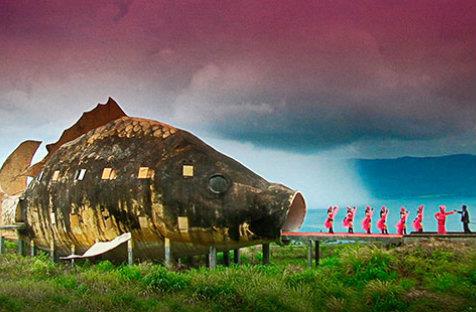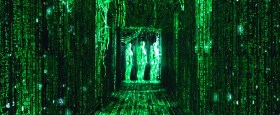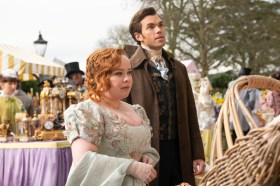Joshua Oppenheimer’s The Act of Killing is a starkly devastating film that examines the nature of killing and how the stories we tell allow us to live under the stain of great atrocity.
Oppenheimer’s film is the result of eight years filming in Indonesia. Initially he began making a film about the survivors from the 1965 Indonesian military coup in which over one million purported communists were brutally murdered by rebel gangster groups. After encountering difficulties with the authorities Oppenheimer changed his approach and began to film the stories of the perpetrators. Suddenly he was meeting dozens of former executioners who were more than happy to tell their stories of mass murder. It is here that The Act of Killing began to take the form which we see today.
The central figure in The Act of Killing is Anwar Congo, who in 1965 was a small-time gangster promoted by the military into a local death squad leader. Anwar proudly boasts of killing over one thousand people and excitedly demonstrates the methods he used to garrotte his victims. Oppenheimer’s bold conceit with The Act of Killing is to let these men re-enact the murders they committed within the frame of whatever movie style they choose. The bulk of the film follows Anwar and his friends as they make their own movies, framing their genocidal stories within the context of cowboy, soap opera and film noir scenarios.
One of the more interesting elements in The Act of Killing is how it so clearly illustrates the blurry line between memory and storytelling. Anwar lives in a culture that not only excuses his actions but celebrates them. He is a hero and the story he is part of is one of triumphant revolution. Oppenheimer challenges this dominant narrative by allowing a new one to be constructed. As Anwar re-creates the murders they slowly become more real for him and a new story takes hold in his imagination. In a jaw-dropping act of cinematic alchemy Oppenheimer frighteningly shows us how narratives can manufacture emotion.
Most unsettling is the idea that there may not be any moral certitude in the world. Anwar may ultimately understand the gravity of his behaviour but is this just another story, another act? When the truth can only be found through such a veil of artifice what does that say about not only Anwar but all of us?
The Act of Killing is a film unlike any other. It challenges the parameters of what a documentary can be, reveals a historical truth much of the western world would choose to ignore, and dramatically interrogates the human face behind genocide. This is cinema at its most gruellingly captivating. The Act of Killing is one of the finest uses of the medium I have seen in years and vital viewing for all human beings.
Rating: 5 stars out of 5
The Act of Killing
Director: Joshua Oppenheimer
Norway/Denmark/UK, 2013, 159 minutes
Melbourne International Film Festival
www.miff.com.au
25 July – 11 August
Actors:
Director:
Format:
Country:
Release:





